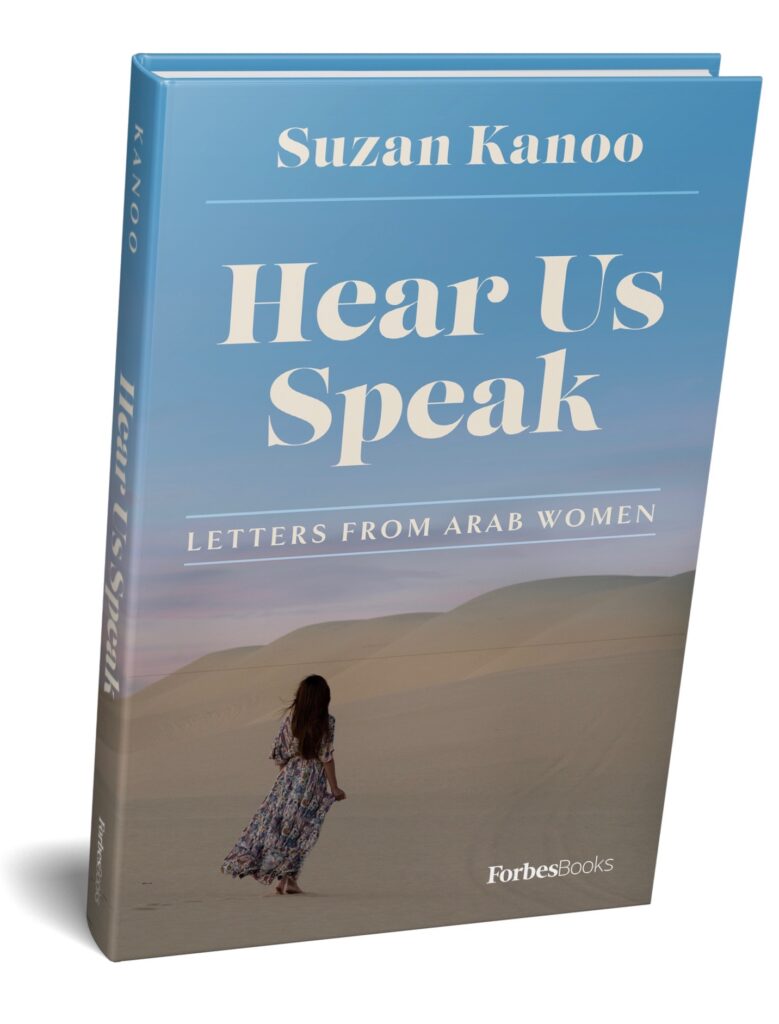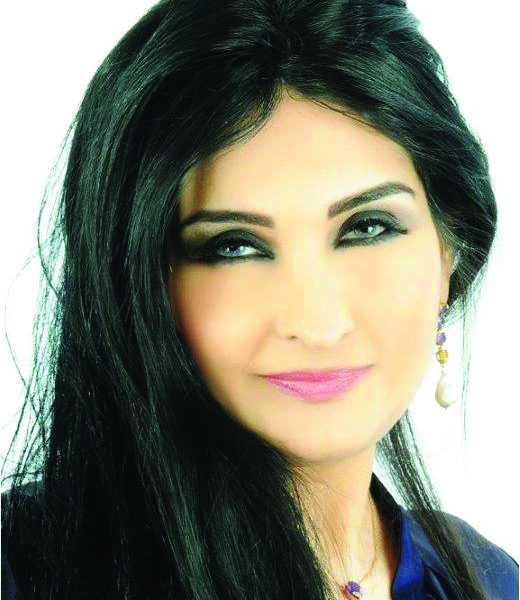Suzan “Suzy” Kanoo, CEO of Khalil bin Ebrahim Kanoo Company and International Motor Trading Agency, is one of the most successful female business leaders in Bahrain and one of the top CEOs in the Arab world. She has chosen to use her influence to advocate for the empowerment of Arab women and worldwide awareness of the need for legislation to ensure their safety and well-being.
After earning her MBA from Harvard Business School, Suzy returned home to take charge of the automotive section of the family business, with blessings from her father. Within six years, her division of K.E. Kanoo was among the top five in the country for its industry. She is a member of the YPO “Top-CEO” network, and was the first Arab woman elected to chair the YPO’s MENA (Middle East and North Africa) division. She has traveled with the UN to Syria and visits refugee camps around the world twice each year. The proud mother of three, Suzy is a sought-after speaker, poet and author of Hear Us Speak: Letters From Arab Women (Forbes Books).
FWM: You are one of the Top CEOs in Bahrain. Tell us about your background.
After studying in the United States, I returned home to Bahrain to take charge of the automotive section of my family business, with blessings from my father. Within six years, my division of K.E. Kanoo was among the top five in the country for its industry. Now, I am the CEO of Khalil bin Ebrahim Kanoo Company and International Motor Trading Agency.
In addition to running the family business, I’m a member of the YPO “Top-CEO” network, and was the first Arab woman elected to chair the YPO’s MENA (Middle East and North Africa) division. I’ve traveled with the UN to Syria and visited refugee camps around the world twice each year. Outside of my career, I’m a proud mother of three, a speaker, poet and author of Hear Us Speak: Letters From Arab Women (Forbes Books). December 10th is International Human Rights Day. Share your current work for women’s rights.
My main work for women’s rights comes from the stories shared within Hear Us Speak and my work around sharing those stories. From speaking events, to media interviews, to guest articles, I continue to spread awareness about the experiences of Arab women, and the importance of women’s rights as a whole. Also, as an elected chair to the YPO’s MENA (Middle East and North Africa) division, I put all my efforts into improving lives, businesses and the world.

FWM: Tell us about your new book, Hear Us Speak: Letters From Arab Women.
Hear Us Speak brings those marginalized voices—voices of Arab women—out of the shadows and into the light. Arab women from all walks of life were interviewed, ranging from painters and journalists; wives, daughters and mothers; entrepreneurs and refugees; social media influencers and ordinary citizens. Many women who shared their stories have survived horrific ordeals of physical and emotional abuse; many who have been incarcerated for expressing their opinions on social media; whose husbands kidnapped their children and fled the country; women who worked harder but inherited less than their brothers, simply because they were women. And yet, the emergent theme of these stories is that these women had emerged without hatred or bitterness. They have not been crushed by circumstances. They have faced insurmountable odds and survived.
FWM: What is the commonality of women in the Arab world?
Women in the Arab world are deeply respectful of others and of social norms. Respect is paramount in our culture. We are also acutely aware of the cultural limitations that shape our lives. For some, this awareness might come at the price of inhibiting us too much in our choices, our words and our actions.
Another commonality, which we share with women everywhere, is that we love our children fiercely and would do anything for them. We want the best future for them, whether they are boys or girls.
FWM: If Arab women were given a voice, what story would they tell?
Arab women would say it’s time to give voice to the voiceless, especially women who are not viewed or treated equally in the eyes of the law. They would stop the shame given to women who have been domestically abused. They would say women who wear hijabs are not submissive and weak. And they would fight for better legislation for Arab women, as they have been. These are just a few out of many things they would say.

FWM: What is a misnomer of women in the Arab world?
Often, people in the west think of or refer to Arab women as weak and submissive. But this is not at all true! Women in the Arab world have opinions and character, just the same as any woman in the West. This is the case whether or not they choose to wear hijabs, which westerners often associate with submissiveness.
One woman I interviewed in Hear Us Speak, for example, is a Saudi media icon who began her career teaching at the university in Riyadh. At the time she was considered something of a rebel. One day she was invited to be a panelist on a talk show—the Arabic equivalent of “The View.” She saw it as a chance to be a pioneer. The university’s administrator told her, “If you take this job, I will fire you.” But she fought back, saying, “You have male lecturers who are not fired for being on television. I should be warded the same rights.” Women throughout the Arab world have just as much spirit and determination as her.
FWM: Why is this book timely?
Hear Us Speak is not only for Arab women, but for women and men everywhere. I believe the stories will always be timely. Because women are still not equal worldwide. And if that day ever comes, the stories in Hear Us Speak will still serve a purpose.


